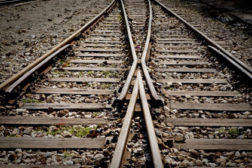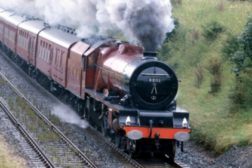Home » Keywords: » positive train control
Items Tagged with 'positive train control'
ARTICLES
NTSB: Distracted engineer caused fatal Philly train wreck
-But he wasn't using his cell phone
May 18, 2016
Feds invest $21.2 million in railroad safety
FRA spends on highway grade crossing safety, positive train control, passenger rail
April 22, 2015
Become a Leader in Safety Culture
Build your knowledge with ISHN, covering key safety, health and industrial hygiene news, products, and trends.
JOIN TODAYCopyright ©2025. All Rights Reserved BNP Media.
Design, CMS, Hosting & Web Development :: ePublishing



